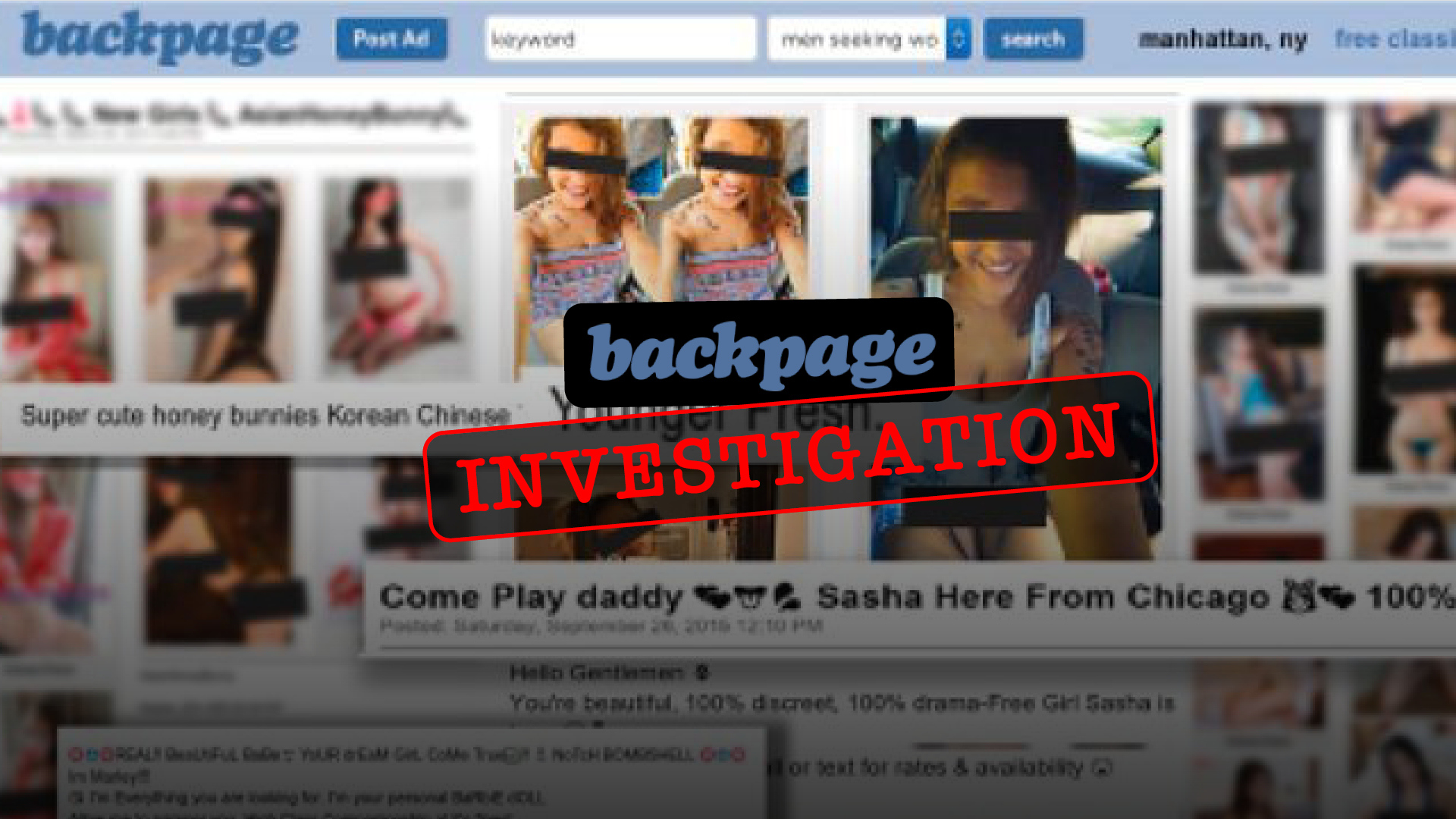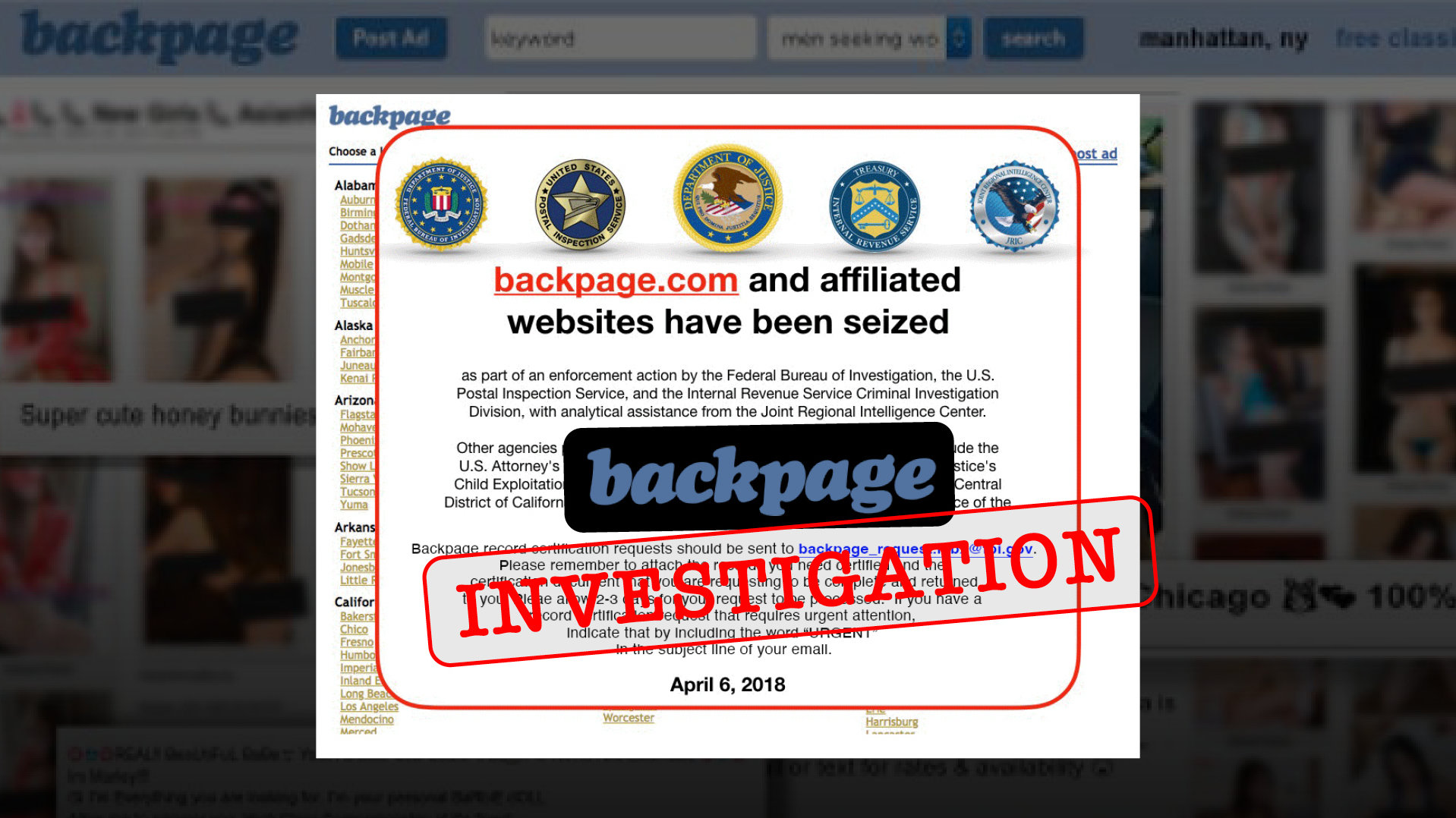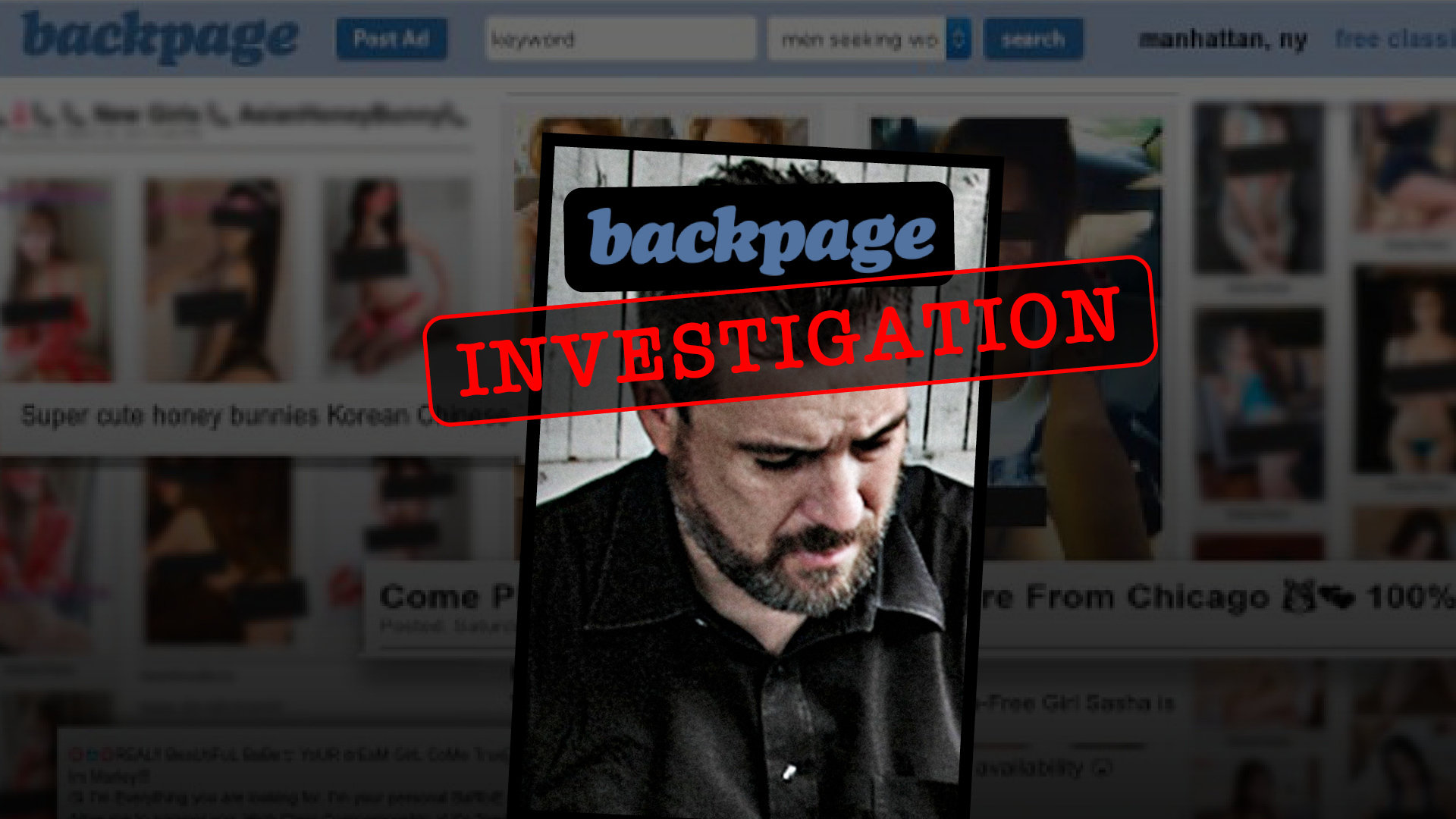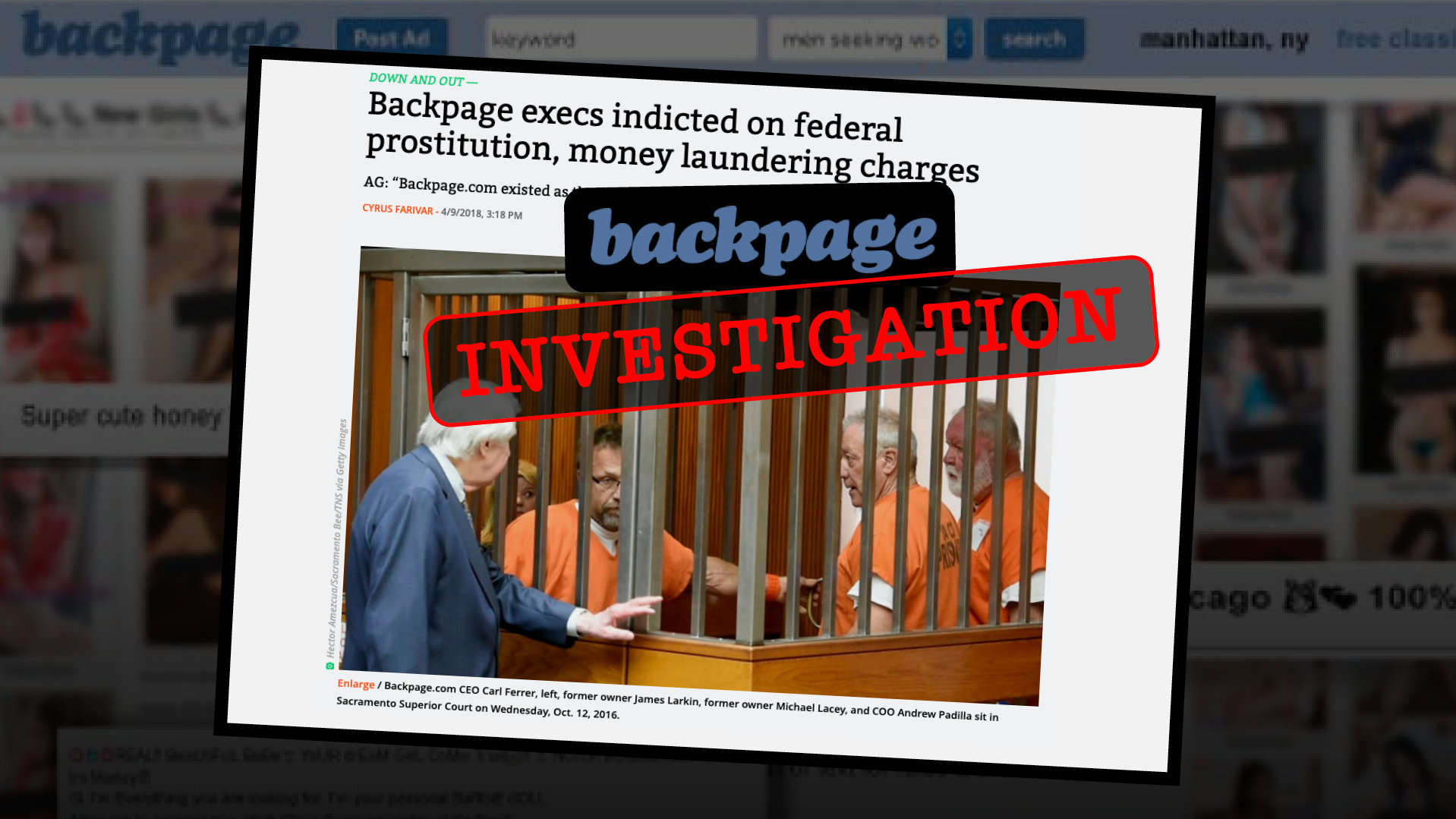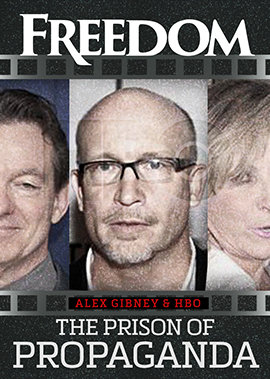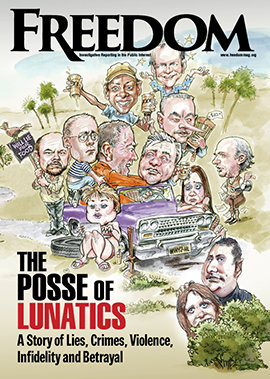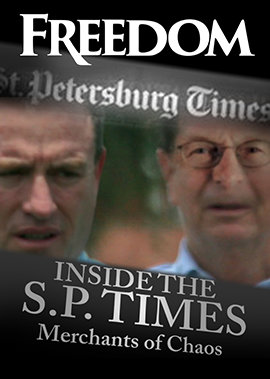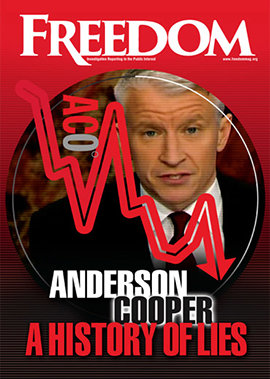PART 1
In this seven-part series on the sexual exploitation of children, Freedom examines the back story of the classified ads portal Backpage.com.

Miami: A 13-year-old has her eyelids tattooed with the name of the man who turned her into a prostitute.
New York: A 13-year-old girl is kicked down a stairwell and forced to have sex with a “customer.”
These are just a few of the gruesome stories from dozens of news reports about underage girls trafficked as sex slaves in the U.S.—and all of them were advertised for sale in the online and print classified portal, Backpage.com.
Built on the model of back-page classified ads in “personals” dating sections of alternative weeklies, Backpage.com features ads for everything from employment to toys and jewelry to auto parts. But its biggest volume—and highest profits—comes from sex advertising, which Backpage’s owners turned into an international gold mine.
Many of those ads have featured what law enforcement agencies call “domestic minor sex trafficking,” or DMST, also known as selling children for sex.
The U.S. State Department describes human trafficking as the world’s fastest-growing crime after drugs. And the hardest part of coping with its horror usually comes after victims are rescued—if they’re fortunate enough to be saved in the first place.
“They are like soldiers returning from wars,” says Gina Vucci of California’s Marin County Coalition to End Human Trafficking, a partnership of nonprofit groups and law enforcement in the San Francisco Bay Area.
From its headquarters in Dallas, Texas, Backpage drove gross annual revenue to $135 million as of 2014, while expanding to 97 countries and 943 locations worldwide.
The Church of Scientology was among the first to aim a spotlight on Backpage.com as the forum first migrated online from the print classifieds tied to alternative weeklies.
Investigations by law enforcement, civil lawsuits and protests by human rights organizations have, over time, ramped up pressure on Backpage’s operations. But all along, the company has consistently asserted through its lawyers that since it only hosted third-party content, its publication of those ads was protected under the Communications Decency Act, which exempts third party Internet providers.
Backpage’s prostitution-based business plan has now been caught up in a storm of criminal indictments and government reports exposing a web of lies. Late in 2016, the California Department of Justice arrested and charged Backpage’s top executives—James Larkin and Michael Lacey and company CEO Carl Ferrer—with pimping and money laundering. Just weeks later, in January 2017, the U.S. Senate released a damning report documenting Backpage’s complicity in facilitating sex trafficking—including with minors.
A judge later dismissed criminal charges against the executives on free speech grounds, but they were immediately refiled amid new, expanded evidence, and are pending as of this writing. Under pressure, Backpage’s owners responded last year by shutting down its adult ad pages in the U.S., claiming government “censorship” made it too costly to continue. Operations overseas continue.
Allegations that the owners and managers of Backpage knowingly promoted prostitution for profit and helped disguise underage sex offerings from authorities—bolstered by new documents disclosed last July—are among several issues that have been underreported in the mainstream press, or never brought to light at all.
There are others:
- Backpage repeatedly refused requests by at least one leading anti-trafficking organization—FAIR Girls, based in Washington, D.C.— to take down ads carrying photos of missing girls the group had identified.
- Backpage’s owners used journalistic content directed by Tony Ortega, former editor of the once-acclaimed Village Voice, flagship newspaper of their weekly alternative newspaper chain, to aggressively try to silence critics.
- Backpage’s owners allowed sex traffickers to use hidden symbols— emojis—to signal pedophiles that children were for sale and to advertise other specific services as their primary means of communication with illicit buyers.
- Backpage has blocked internet users in the U.S. from accessing its foreign adult pages in an apparent attempt to conceal an ongoing global marketplace where those looking for child sex trafficking come to shop.


